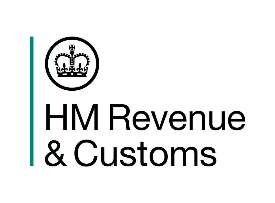Data included: Wards, LAs, Surrey, South East, England.
Latest data included: 2016-2020.
Child Benefit (CB) is a payment that you can claim for your child. It is usually paid every 4 weeks but in some cases can be paid weekly. The payment can be claimed by anyone who qualifies.
These tables include:
- 2016 - 2020 Number of families and children in receipt of child benefit (total families and total children), by local authority
- 2020 Number of families and children in receipt of child benefit by family size & age, by local authority
- 2020 Number of families and children who opted out of child benefit by family size & age, by local authority
- 2020 Number of families and children in receipt of child benefits by family size & age, by ward
- 2019 Number of families and children in receipt of child benefit by family size & age, by local authority
- 2019 Number of families and children who opted out of child benefit by family size & age, by local authority
- 2018 Number of families and children in receipt of child benefit by family size & age, by local authority
- 2018 Number of families and children who opted out of child benefit by family size & age, by local authority
As of January 2013, claimants may be liable to a tax charge called the ‘High Income Child Benefit charge’ (HICBC). Being liable for this charge does not affect a child’s entitlement but any CB recipient is liable to repay some or all of their CB back if they or their partner has an individual income of more than £50,000 per year.
For every additional £100 over the £50,000 threshold that an individual earns, the tax charge due increases by 1%. This means that any recipient whose income (or partner’s income) is over £60,000 will be liable to repay their entire CB entitlement. Alternatively, claimants affected by the HICBC charge have the option to opt-out of receiving CB, thereby ceasing their payments.
CB is paid to those responsible for children (aged under 16) or qualifying young people. The latter includes:
- those in full-time non-advanced education or (from April 2006) on certain approved vocational training courses and who are under 19, or are aged 19 and have been on the same course since their 19th birthdays. (Note: those reaching 19 up to 9 April 2006 ceased to qualify on their 19th birthdays);
- those entered for future external examinations, or are in the period between leaving education (or exams finishing) and the week containing the first Monday in September (or similar dates after Easter and in early January, if earlier), and are not in work (there are slight variations for Scotland);
- those aged under 18 who have moved directly from full-time education to being registered for work or training with the Careers service or with Connexions. You can get CB even if your child doesn’t live with you. However, if they live with someone else, you can only get CB if:
- you pay towards the upkeep of your child
- what you pay is at least the same as the amount of CB you get for your child
- the person bringing up your child is not getting CB for them - if you and another person both claim CB for the same child, only one of you can get it.
You can also claim CB for a child even if you’re not their parent, but you have to be responsible for them to qualify. Awards are also subject to residence criteria being satisfied. There are 2 separate amounts, with a higher amount for your eldest (or only) child and a lower amount for each of your other children.
The statistics are as close to real-time as possible and represent the complete picture as at the 31st August, including back-dated awards pertaining to new-births.
The figures have been independently rounded to the nearest 5. This can lead to components as shown not summing to totals as shown.
Frequency: Calendar Year
Reference links:


